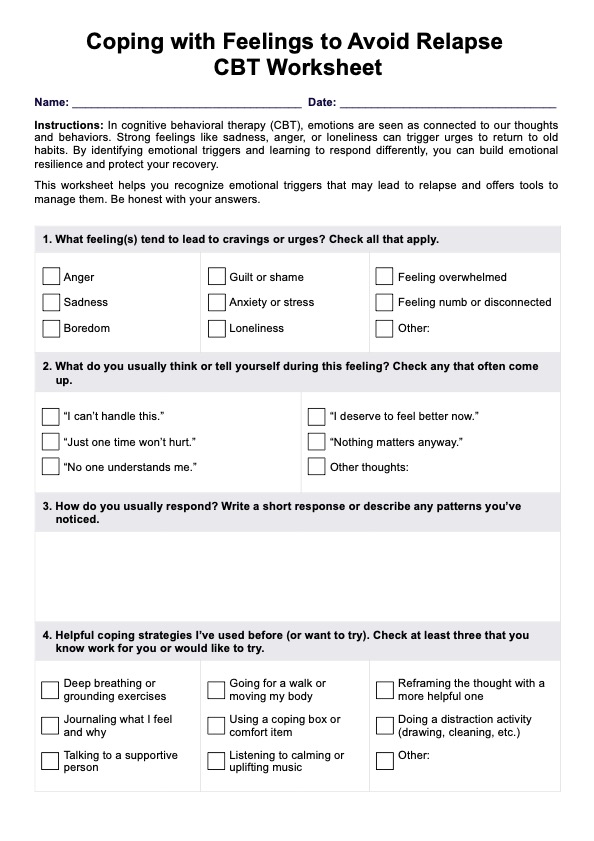The time can vary depending on the individual, but it might take a few sessions to complete the worksheet thoroughly.

Coping with Feelings to Avoid Relapse CBT Worksheet
Get our Coping with Feelings to Avoid Relapse CBT Worksheet. Enhance client self-awareness, develop coping skills, and prevent relapse effectively.
Use Template
Coping with Feelings to Avoid Relapse CBT Worksheet Template
Commonly asked questions
This worksheet helps individuals identify triggers, develop coping strategies, and prevent relapses.
Anyone in recovery from substance abuse can use this worksheet, preferably under the guidance of a healthcare professional.
EHR and practice management software
Get started for free
*No credit card required
Free
$0/usd
Unlimited clients
Telehealth
1GB of storage
Client portal text
Automated billing and online payments











